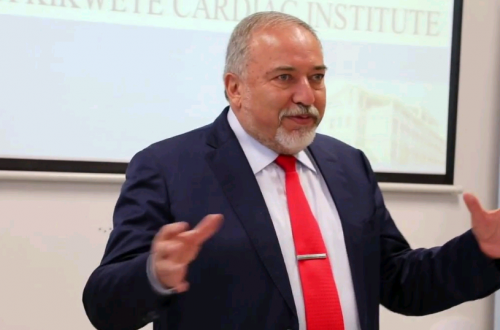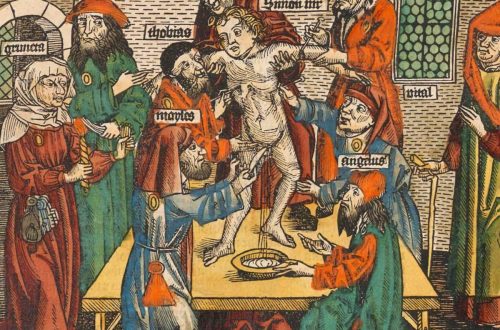It is worth reading Phil’s lecture in full.
Phil points out that, even during the 1930s, the standard “Left” analysis downplayed and failed to recognise the centrality of antisemitism to the Nazi worldview:
The Nazis were anti-Semites, of a particular, and indeed the most radical kind. They hated Jews in a particular and intense way and would not have killed them in such huge numbers if they had not been so. Anti-Semitism was central to the Holocaust – it was not incidental or marginal. It was central to Nazism, at the core of the belief system of the Nazi elite, a driving obsession. The Nazis may have downplayed it, on occasion, from time to time, but it was never anything but central to their belief system, to their way of thinking about the world, to what they saw as their most fundamental tasks.
THE LEFT AND THE HOLOCAUST
This was not always understood by everyone. For some time after the Holocaust, as Shulamit Volkov has observed, relatively little attention was actually given to this distinctive feature of Nazism. Attention (in the West) was largely given to what were seen to common features of Nazism and Stalinism as twin forms of totalitarianism, while in the East, Nazism was seen as a product of monopoly capitalism, and as a form of fascism (and not all forms of fascism, as we know from the Italian case for example, had anti-Semitism at their core).It was only really in the late 1960s that anti-Semitism began to assume any prominence in Holocaust historiography, that this core element of Nazi ideology began to be studied in depth.
There are clear lessons for today:
For we still do not seem to have learned a simple crucial lesson that Hitler taught us more definitively than anyone else in history: some people, some regimes, some ideologies, some political programs, and, yes, some religious groups, must be taken at their word. Some people mean what they say, and say what they will do, and do what they said. . When they say they will kill you, they will kill you”.
So what I want to say then, to end on, is this. If today, even after the Holocaust, perhaps especially even after the Holocaust, people say they hate Jews and they hate them enough to want to kill them, we need to take them seriously. They very probably mean what they say and they may very well do what they mean.
And the reason for this, in the Nazi case and I suggest now today too, is that anti-Semitism is not a means to another end; it is not a cover for something else; it is not to be understood as a response to this or that difficulty, to unemployment, to exploitation, or even, let me say it, to occupation. It is what it is.There used to be an idea on the left that anti-Semitism was all or some of these things, that it was, as the great German socialist August Bebel once put it, “the socialism of fools”. It was and is no such thing. It was not and is not socialism of any kind, foolish or otherwise. It was and is a hatred of Jews, a hatred which in the minds of the Nazis was taken to a radical end (though that is not to say it cannot be radicalised anew, that it cannot be rearticulated and reshaped). In their minds, it was a murderous hatred, one that led them to organise the slaughter of millions. If it was once, mistakenly, not taken seriously, we would be wise not to make this mistake again.
You can hear the boos from the UCU Activist List already, can’t you?


